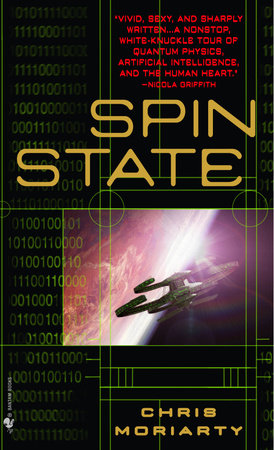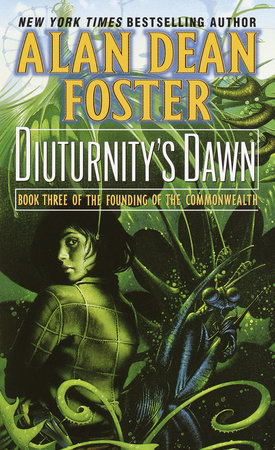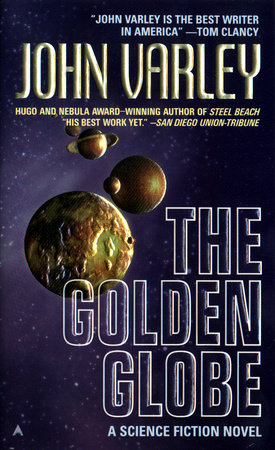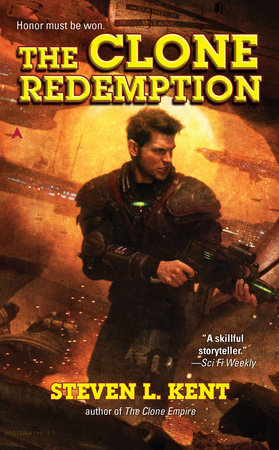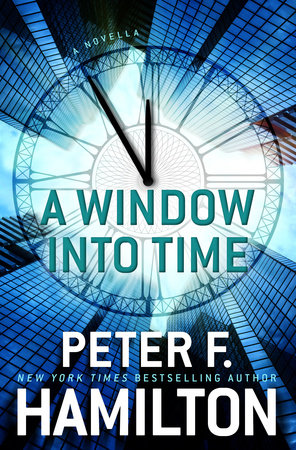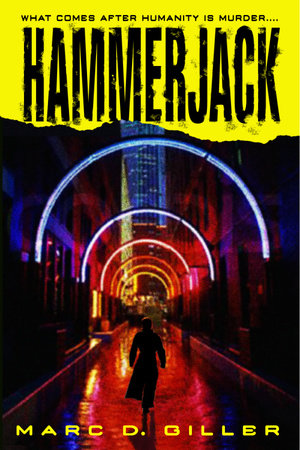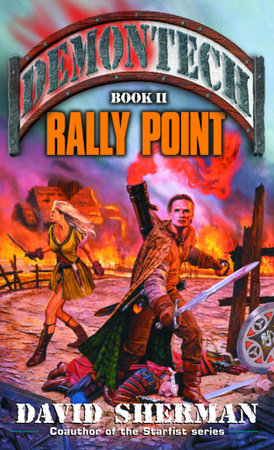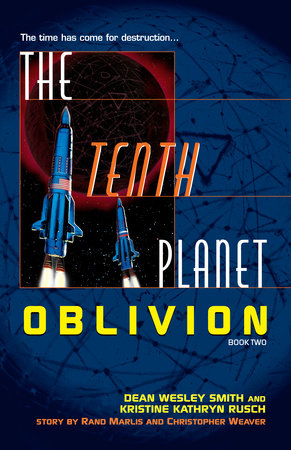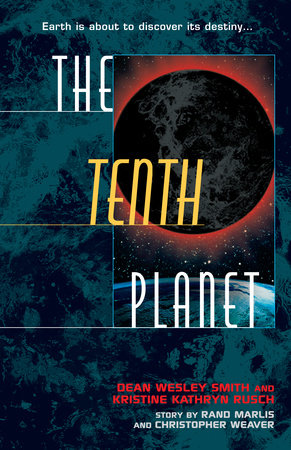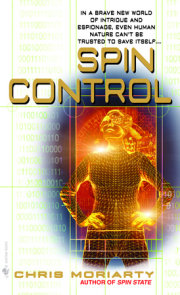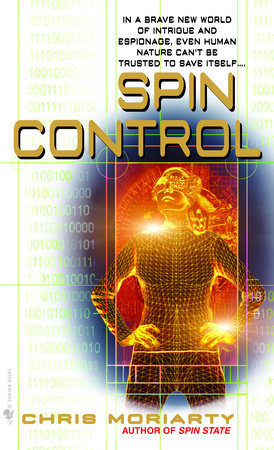Author Q&A
The AI STOLE MY BOOK
(The Long Strange Trip from Idea to Publication)
This week’s assignment: write something funny.
Easier said than done. After all, belly laughs aren’t the first thing that comes to mind when you mention the words Hard SF to the man on the street.(1) When I asked my editor what to write, she suggested I interview the Artificial Intelligence who is one of Spin State‘s two main characters. To which I responded with impressive maturity and a refined sense of metonymy:(2)
"Are you crazy? He’ll make me look stupid!"
But then I thought about it. And realized that, though I wasn’t about to let Hyacinthe Cohen, self-declared fashion maven and suspected Mossad agent, show me up in public, I might just be able to get away with talking about him behind his back. After all, Cohen wasn’t even supposed to be in the book. And the story of how a nice Jewish AI with a taste for oysters and caviar charmed his way into Spin State despite my best intentions is pretty much the story of the making of the book – and the making of this writer.
**
I got the writing bug late, but I got it with a vengeance. Within a matter of weeks I went from being a perfectly sane person who had never dreamed of writing fiction to being a not even remotely sane person deep in the throes of writing a massive doorstop of a science fiction trilogy that I just knew was going to be the biggest thing to hit SF since Tolkien, LeGuin and Gibson all rolled into one. By the time I came up for air, I had something like 800 typewritten manuscript pages of…well, the title I gave it back then is way too embarrassing to share, so let’s just call it the Monster Trilogy.
I knew, of course, that the embryonic Monster Trilogy wasn’t ready to stand up to real criticism, so I did what many aspiring writers have done before me: I showed the first draft to my mother. Who read every blessed word of it. And then said: "You know, you’re a really talented painter. Have you thought about illustrating children’s books?"
**
I mentioned that it was my mother who said this, right?
**
So.
I did what countless other writers have done when faced with the seemingly insurmountable task of turning an unreadable first draft into a publishable novel: I quit. I threw the draft in a drawer, started writing short stories, and told myself I just wasn’t cut out to be a novelist. After which, in order to avoid admitting failure to all the people I’d told I was writing a novel, I had to get out of town. (Folks, there’s a lesson here…)
I moved to Wyoming, where I waited tables at truck stops between ranch jobs. Then I moved into a trailer park. Then I moved out of the trailer park and into a town in Montana whose population was 7 according to the state highway administration’s helpful roadsign.(3) Then I snagged a cowboying gig about which I mainly remember spending a lot of time doctoring lame horses and sitting around watching Denver Bronco games while my coworkers shopped the mail order bride catalogs.(4) Sometime around 1994, while sweating it out on top of a bucking horse, it occurred to me that health insurance would be a Good Thing. So I went to law school. And all the while, despite the fact that any reasonable person would long ago have given up, I kept on writing.
By now I had graduated from decent amateur science fiction to sensitive, finely-turned, and howlingly unpublishable literary fiction about cowboys and truck stop waitresses. But there was a still a little SF in there as well. And, bit by bit, it was the SF that actually started to go somewhere.
Looking back through old files from that first year of law school, I turned up the following fragment in a heavily corrupted Mac file that’s enough upgrades behind the curve to have achieved near-deadware status:
He was lost, and there was no hope of getting directions. The Zone was a machine enclave: a tax haven where AIs and the few commercially active transhumans kept homes for the sole purpose of establishing Ring-side residency. The sidewalks were empty — and so were the big houses behind their immaculately painted shutters.
Neither of the main characters of Spin State existed when I wrote that paragraph. In fact, I hadn’t even imagined writing the novel that Spin State eventually became. Nonetheless, these lines appear, with very minor changes, on page 125 of the published book. And in retrospect it seems inevitable that once I had invented an AI tax haven I would invent AIs to populate it, and that once I had invented AIs with mansions and tax breaks one of them would turn out to be Hyacinthe Cohen or someone very like him.
A few years after I first wrote those lines, I decided it was time to take one last desperate all-or-nothing shot at writing a novel. I went down into the basement and dug up the now heavily-mildewed boxes in which I had interred the stillborn first draft of the Monster Trilogy. Most of it, read with the distance of a few years, turned out to be a lot better than I’d thought it was. Sure, I’d made a lot of rookie mistakes in that draft. But the writer I was now knew how to fix those mistakes. And there’s nothing as encouraging to a writer as reading a draft and seeing mistakes he or she knows how to fix.
Less encouraging, however, was the realization that the Monster Trilogy was completely unpublishable, at least as a first novel. It was a trilogy. Worse, it was a trilogy whose individual books didn’t even remotely stand alone. Worse yet, the first volume alone ran over 1000 pages in manuscript. With appendixes, footnotes, interpolated drawings and ethnographic reports, and (I can’t really be admitting this in public, can I?) an entire invented language.(5) In short, the Monster Trilogy was the kind of massive, quirky tome that established authors can afford to publish precisely because they are established. From an unpublished writer without so much as a short story credit, on the other hand, it would be less likely to inspire awe and wonder than fear, loathing and unanswered query letters
Clearly, it was time to carve the wooly mammoth up into bite-sized pieces. I needed a self-contained story, set in the same universe as the Monster Trilogy, that I could develop into a stand-alone novel. I rummaged through my old drafts and found something that looked to me like it just might fit the bill: a rough draft of a novella about a young field geologist who goes to a mining colony called Compson’s World and finds…well, we’ll talk about what he found later.
I decided to expand this novella into a full-length novel. It involved people and events only tangentially related to the Monster Trilogy, which I could still hope to publish later. Equally important, all the scene-setting and world-building and appendices I had done for the Monster Trilogy would allow me to bang this new book out with minimal additional research. (I was wrong about that, of course, but why and how badly would take another essay to explain.)
At first I got on with the new novel like a house on fire. The writing was easy. The world felt vivid and interesting. The characters obligingly schemed and plotted and flirted with each other. This was going to be nothing like the last time. This book was going to be a piece of cake. Then, somewhere around 20 thousand words I hit a wall.
After banging my head against that wall for a few months, I began to see the source of the problem: I didn’t like my main character. Actually, I was sick of him. He’d been okay when the story was just a novella, but he couldn’t hold my interest through 100 thousand words. I needed a character strong enough to hang a whole novel on.
The funny thing was, I already had one. I just hadn’t thought of putting her in this novel.
**
The main character of the first volume of the Monster Trilogy was Kylie Roemer, a United Nations Peacekeeper whose professional skills are wet-wired into her, but who loses her personal memories every time she makes an FTL jump. At the critical point in her story, Roemer faces a decision that the Syndicate clone Bella actually talks about in the published version of Spin State: do you jump out of a planet where you’ve made friends (and more, perhaps) and lose all the memories you’ve made there, or do you accept permanent exile in order to remain the person you’ve become since your last jump? Roemer makes a different decision than the one Bella says she’d make, but the idea – and underlying emotional conflict – was there already.
It took me a while to figure out how to fit Roemer into Spin State, but eventually I began to see the faint outline of another character behind her. Another Peacekeeper, also a woman, but with more advanced wetware and a very different personal history. This character grew into Catherine Li, the genetic construct who passes for human in Spin State by hacking her own wetware and purposely using jump amnesia to erase her incriminating childhood memories.
Armed with my new and improved main character, I tore up my last draft and tore into the story again. And this time I wasn’t just getting on like a house on fire. This time I was burning down the whole damn neighborhood. Li had a job she could really sink her teeth into: investigating the death of Hannah Sharifi, a quantum physicist who was in many ways the offshoot of the original geologist protagonist of the earlier drafts. Even better, she had big personal problems, plenty of attitude and some truly snarky enemies. I got her on the ground, the skullduggery began, and life was grand … until I ran into another roadblock around page 100.
You see, Li’s commanding officer was lying to her, hedging her bets by concealing information vital to the investigation. And she wasn’t the only person who was lying. Everyone in Spin State has something to hide. And as Li’s investigation progresses each one of these dirty little secrets starts to look like a really good reason to kill Hannah Sharifi – or Li herself. If Li was going to get a handle on what was really happening, I realized, she was going to have to talk to someone older, wiser, and better connected than she was.
It would be a cameo role at most: walk on-stage, deliver the info, and exit gracefully, never to be heard from again. So it wasn’t like this had to be a real character. I just needed someone who could tell Li all the things everyone else wasn’t telling her. Someone who dealt in information.
Like … an AI?
**
At this point, in one of those odd confluences of memory, inspiration and sheer unadulturated panic that characterize the writing of a first draft, I thought of that little paragraph sitting on my hard drive. I hunted around for it (thereby delaying by several hours the horrible moment at which I’d have to actually write something new), pasted it into the current draft, and messed around with it until it ran as follows:
Cohen lived in the Zona Angel, an immaculately tended neighborhood of immense town houses overlooking the quietest streets money could buy. The houses here had names, not numbers, and the streets didn’t appear on any public-access database. Li usually dialed in; on foot she had to backtrack twice before she found the house. There was no one on the street to ask for directions; Zona Angel was a machine enclave, a tax haven where AIs and the few commercially active transhumans jept homes to establish Ring-side residence. The wide white sidewalks were quiet between tidy flower beds, and half the houses were probably empty behind their brightly painted shutters.
Cohen? I thought. That’s weird. Who the hell’s Cohen? Then I kept writing. And what came out read something like this:
Cohen was waiting for her in his study, a bright sunlit room whose grass-papered walls were hung with elegantly framed portraits of someone else’s ancestors. Glass-paned doors opened onto a walled garden. Antiques scented the air with the smell of old hardwood and beeswax furniture polish. The bookshelves held snapshots of scientists clowning for the camera in front of ivy-covered buildings, including a shot of the original Hyacinthe Cohen at some artificial consciousness conference before the Evacuation. Alongside these were pictures of the Cohen Li knew — or, rather, photos of handsome, unfamiliar faces wearing Cohen’s sly smile. Cohen at parties. Cohen playing with his dogs. Cohen shaking hands with the Israeli Prime Minister and sunbathing on the beach in Tel Aviv.
And there were novels, of course. Cohen and his novels. Stendhal. Balzac. The Brontës. Sometimes Li thought Cohen knew more about book people than real people.
Cohen himself was sitting on the sofa, wearing a summer suit the color of the new-mown hay in the Stubbs portrait of eclipse that hung behind him. "Catherine," he said, taking her hand in his and drawing her down to sit beside him. "So you’re back on Compson’s World. How bad is it?"
By the time I’d pounded out a first draft of that scene, I was hooked. Who was this AI that seemed to slip in and out of other people’s bodies at will? What could explain his obsession with 19th century novels and portraits of other people’s ancestors? And how did he know the Israeli Prime Minister? Was he Israeli? Was he Jewish? Was he … an Israeli spy?
I had to know. And the only way to find out was to keep writing.
**
I began to imagine a shared backstory for this strange artificial being who had insinuated himself into my novel. I began to began to suspect, though at first I was far from certain, that Cohen might be secretly in love with my take-no-prisoners heroine. And I began to ask him the question on which the entire novel hangs: would he help Li … or betray her?
Line by line, page by page, the story that became Spin State unfolded in front of me. This was it, I realized: the moment every writer waits for. After almost a decade of failed launches, I finally had two characters who were strong enough — both individually and together — to write their own story.
I just followed them, taking notes, drawing maps, charting the unfamiliar terrain as best I could. And in doing so, I crossed over into territory that was a lot bigger and a whole lot wilder than the territory I’d set off to write about.
**
1. I tried this, actually. The answers, in order of receipt, were: Star Trek; Carl Sagan; and "the future governor of California".
2. Don’t ask me what metonymy means. It’s one of the eight words in the English language I’ve finally admitted I’m not cool enough to understand.
3. The sign may have been right too, for all I know. But if it was, then three out of my seven neighbors never got around to introducing themselves.
4. Russian mostly. Occasionally Thai. And one memorable catalog from Kazakhstan, where the women do really interesting things with their eyebrows.
5. Have I mentioned the epic poetry? Printed in bilingual format, of course. I was reasonable; I didn’t expect readers to actually learn my invented language.
